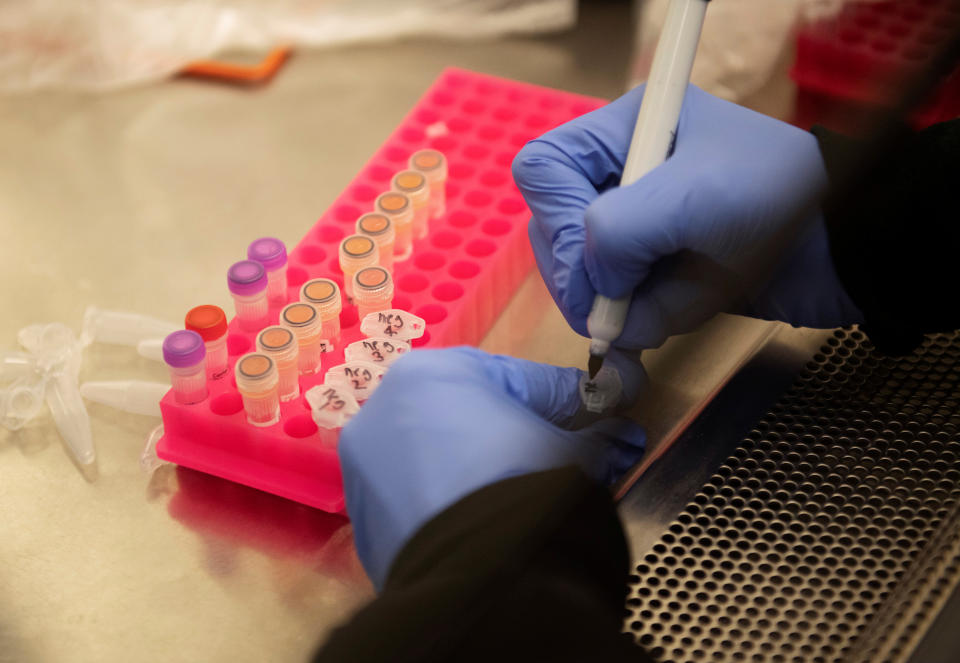FDA approves emergency use of malaria pill for COVID-19 treatment
The Food and Drug Administration on Sunday approved the anecdotally promising malaria drug for emergency use to treat hospitalized patients for COVID-19.
The U.S. Department of Health and Human Services (HHS) said in a statement it has accepted 30 million doses of hydroxychloroquine sulfate donated by Sandoz, the Novartis (NVS) generics and biosimilars division, and one million doses of chloroquine phosphate donated by Bayer Pharmaceuticals (BAYRY).
The drug is currently being tested in New York hospitals.
The drug’s effects on patients has result in a shortage for patients who use it for arthritis and lupus, and there have been reports of hoarding among medical professionals. Several states recently took steps to limit the number of prescriptions filled, by forcing increased accountability of who is prescribing the drug and why.

On March 20, Novartis said it, “intends to donate up to 130 million 200-mg doses by the end of May, including its current stock of 50 million 200-mg doses. The company is also exploring further scaling of capacity to increase supply and is committed to working with manufacturers around the world to meet global demand. Novartis’ Sandoz division currently only holds a registration for hydroxychloroquine in the U.S., and will pursue appropriate regulatory authorizations from the U.S. FDA and the European Medicines Agency.”
On March 19, Bayer announced it would donate 3 million doses.
In a statement, HHS reiterated the drug still only has anecdotal evidence to support its efficacy.
“Anecdotal reports suggest that these drugs may offer some benefit in the treatment of hospitalized COVID-19 patients. Clinical trials are needed to provide scientific evidence that these treatments are effective,” according to the statement.
Earlier Sunday, Novartis CEO told a German newspaper the drug was effective, saying, “Pre-clinical studies in animals as well as the first data from clinical studies show that hydroxychloroquine kills the coronavirus.”
President Donald Trump touted the drug’s efficacy based on the anecdotes, meanwhile Dr. Anthony Fauci, director of the National Institute of Allergies and Infectious Diseases, has cautioned against promoting unproven medical treatments.
Anjalee Khemlani is a reporter at Yahoo Finance. Follow her on Twitter: @AnjKhem
Read the latest financial and business news from Yahoo Finance
Follow Yahoo Finance on Twitter, Facebook, Instagram, Flipboard, SmartNews, LinkedIn, YouTube, and reddit.


